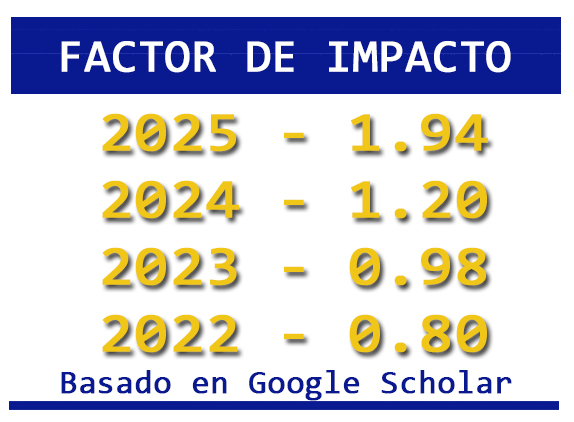EL BALANCE VIDA-TRABAJO EN LAS ORGANIZACIONES DE DIFERENTES PAÍSES DEL MUNDO
DOI:
https://doi.org/10.36790/epistemus.v10i20.28Keywords:
balance vida-trabajo, intervenciones organizacionales, recursos humanos, contexto globalAbstract
Los cambios sociales, demográficos y económicos en el mundo han generado nuevos desafíos para las organizaciones en su búsqueda de la productividad y competitividad. Estos cambios afectan el equilibrio de la vida personal y laboral de los colaboradores incidiendo en su desempeño organizacional. El objetivo del presente estudio fue realizar un análisis de la situación que presentan las organizaciones de diferentes países de Asia, África, Europa y América en relación al balance vida-trabajo y emitir recomendaciones que permitan a las organizaciones implementar políticas realmente efectivas que les generen beneficios en términos de productividad y desempeño.
Los resultados de la revisión permitieron concluir que existen diferencias significativas respecto del entorno cultural, económico y legal de los países analizados. Para que las intervenciones organizacionales que se implementen en la búsqueda del mejoramiento del balance vida-trabajo sean efectivas, es necesario adecuarlas al contexto general del país en el cual se pretenden implementar.
Downloads
References
V. Chandra, “Work–life balance: eastern and western perspectives”, The International Journal of Human Resource Management, vol.23, no.5, pp.1040–1056, March 2012.
D. S. Carlson and K. M. Kacmar, “Work-Family Conflict in the Organization: Do life role values make a difference?”, Journal of Management, vol.26, no.5, pp.1031-1054, 2000.
J. H. Greenhaus and L. Singh “Work-Family Linkages, A Sloan Work and Family Encyclopedia Entry”, Chestnut Hill, MA: Boston College, February 2003.
M. R. Frone, M. Russell and M. Lynne, “Antecedents and outcomes of work-family conflict: testing a model of a work-family interface”, Journal of Applied Psychology, vol.77, no.1, pp.75-78, 1992.
J. H. Greenhaus and N. J. Beutell, “Sources of Conflict Between Work and Family Roles”, Academy of Management Review, vol.10, no.1, pp.76-88, 1985.
CEPAL, “Familias y políticas públicas en América Latina: una historia de desencuentros”, Santiago de Chile. Publicación de las Naciones U nidas, 2007.
OIT, “Conciliación del trabajo y la vida familiar”, 312ª. Reunión, Ginebra, Suiza, 2011.
OIT, “El tiemo de trabajo en el siglo XXI”, Ginebra, Suiza, 2011.
OCDE, “Doing better for families,” OECD Publishing. Consultado en: http://dx.doi.org/10.1787/9789264098732-en.
S. Lewis, R. Gambles and R. Rapoport, “The constraints of a work-life balance approach:an international perspective”, International Journal of Human Resource Management, vol.18, no.3, pp.360-373, March 2007.
K. Chan and T. Wyatt, “Quality of Work Life: A Study of Employees in Shanghai, China”, Asia Pacific Business Review, vol.13, no.4, pp.501-517, 2007.
OCDE, “Balancing Work and Family Life: helping parents into paid employment”, OECD Employment Outlook, 2001.
J.C. Gornick and M.K. Meyers, “Families that work-Policies for reconciling parenthood and employment”, New York: Russell Sage Foundation, 2003.
T. D. Allen, D. E. L. Herst, C.S. Bruck and M. Sutton, “Consequences associated with work-to-family conflict: A review and agenda for future research”, Journal of Occupational Health Psychology, vol.5, no. 2, pp.278-308, 2000.
F. McGinnity and C. Whelan, “Comparing Work-Life Conflict in Europe: Evidence from the European Social Survey”, Social Indicators Research, vol.93, pp.433-444, 2009.
I. Arriagada, “Familias latinoamericanas. Diagnóstico y políticas públicas en los inicios del nuevo siglo”, seire Políticas Sociales, vol.57 (LC/L.1652-P), Santiago de Chile, Comisión Económica para América Latina y el Caribe (CEPAL). Publicación de las Naciones Unidas, 2001.
S. Idrovo, C. León and M. Grau, “Comparing work-life balance in Spanish and Latin-American countries”, European Journal of Training and Development, vol.36, no.2, pp.286-307, December 2011.
B. Akanji, “Realities of work life balance in Nigeria: perceptions of role confict and coping beliefs”, Business, Management and Education, vol.10, no.2, pp.248-263, December 2012.
T. D. Allen, “Family-Supportive Work Environments: The Role of Organizational Perceptions”, Journal of Vocational Behavior, no.58, pp.414-435, 2001.
L. T. Eby, W. J. Casper, A. Lockwood, C. Bordeaux and A. Brinley, “Work and family research in IO/OB: Content analysis and review of the literature (1980-2002)”, Journal of Vocational Behavior, vol. 66, pp.124-197, February 2004.
Downloads
Published
How to Cite
Issue
Section
License

This work is licensed under a Creative Commons Attribution-NonCommercial-NoDerivatives 4.0 International License.
The magazine acquires the patrimonial rights of the articles only for diffusion without any purpose of profit, without diminishing the own rights of authorship.
The authors are the legitimate owners of the intellectual property rights of their respective articles, and in such quality, by sending their texts they express their desire to collaborate with the Epistemus Magazine, published biannually by the University of Sonora.
Therefore, freely, voluntarily and free of charge, once accepted the article for publication, they give their rights to the University of Sonora for the University of Sonora to edit, publish, distribute and make available through intranets, Internet or CD said work, without any limitation of form or time, as long as it is non-profit and with the express obligation to respect and mention the credit that corresponds to the authors in any use that is made of it.
It is understood that this authorization is not an assignment or transmission of any of your economic rights in favor of the said institution. The University of Sonora guarantees the right to reproduce the contribution by any means in which you are the author, subject to the credit being granted corresponding to the original publication of the contribution in Epistemus.
Unless otherwise indicated, all the contents of the electronic edition are distributed under a license for use and Creative Commons — Attribution-NonCommercial-ShareAlike 4.0 International — (CC BY-NC-SA 4.0) You can consult here the informative version and the legal text of the license. This circumstance must be expressly stated in this way when necessary.
The names and email addresses entered in this journal will be used exclusively for the purposes established in it and will not be provided to third parties or for their use for other purposes.















